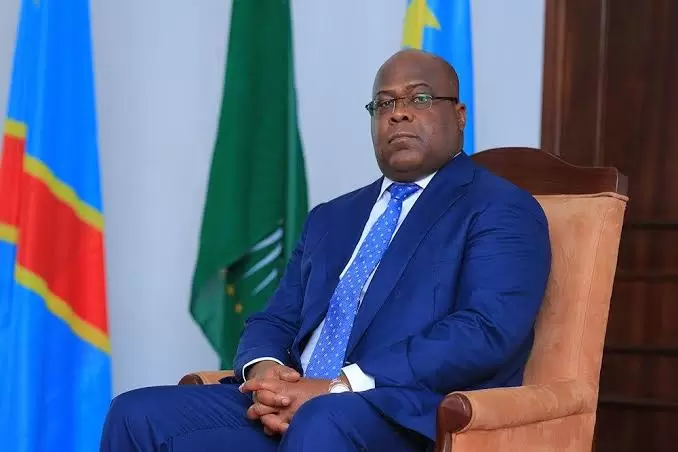

President Felix Tshisekedi described inter-ethnic bloodshed in DRC’s northeast as “attempted genocide” after scores of people were killed and tens of thousands displaced.
The leader of the Democratic Republic of the Congo said the violence appeared to be a “plot” and vowed to “find out the truth” about who was behind the deadly unrest.
Fighting in Ituri province between militias connected to Lendu farmers and Hema herders has killed at least 160 civilians since June 10, Tshisekedi said on Tuesday at the end of a three-day visit there.
“Clearly, this looks like an attempt at genocide. To push Ituri to ignite,” he said at a press conference in the city of Bunia.
Tshisekedi added the aim was apparently to “destabilise the power” of the central government in the capital, Kinshasa.
The gold-rich region has experienced ethnic conflict before with more than 60,000 people killed and 500,000 others displaced as a result of clashes between the two groups between 1999 and 2003, according to the United Nations.
In an attempt to end the latest outbreak of violence, Tshisekedi on Sunday ordered DRC’s army to launch a “large-scale” operation against armed groups in Ituri’s Djugu and Mahagi territories.
He said the offensive would also see operations extend further south, including to South Kivu province, in a bid to put a “definite end” to the dozens of rebel groups active in eastern DRC.
Tshisekedi added his government also devised a plan for the “complete eradication” of foreign armed groups operating in the region.
The operation was put together in collaboration with the UN peacekeeping mission MONUSCO and neighbouring countries affected by the violence, including Uganda and Rwanda.
Uganda, in particular, has been under increased strain by the violence in Ituri.
Hundreds of people fleeing the conflict crossed the border into Uganda every day in June, according to the UN’s refugee agency (UNHCR), which last week described transit and reception facilities in the country’s west as “overwhelmed”.
UNHCR estimated more than 300,000 people have fled their homes in Ituri, with people escaping unrest in Djugu in particular.
During his visit to the region, Tshisekedi urged people to “love one another”.
“This is the province of all Iturians. There is room for everyone,” he said on a visit with internally displaced people.
Tshisekedi’s comments came after DRC’s army announced last week it seized control of the Ngudjolo militia’s stronghold in an offensive backed by MONUSCO. The armed group has been blamed for instigating the latest bloodshed.
Ituri is not the only part of DRC wracked by unrest with about 4.5 million people across the vast central African nation displaced by various conflicts.
Vast swathes of territory have been destabilised by the Rwandan genocide in the early ’90s and other regional fighting.
Ituri and North Kivu province to the south are also trying to halt a major epidemic of Ebola that has claimed more than 1,500 lives since it emerged last August. Both provinces sit along DRC’s border with Uganda.
Starting April 2, South African drivers will get lower costs when filling their tanks as fuel prices decrease for all…
The U.S.-based driver training company Zutobi analyzed road safety worldwide and found South Africa stays last in driving danger since…
The Basketball Africa League (BAL) returns for its 2025 season with exciting changes and developments. Since 2019 the NBA-linked basketball…
The Somali president supports their military forces to eliminate the threats from Al-Shabaab, ISIS, and Al-Qaeda. The Somali National Army…
UAE President Sheikh Mohamed bin Zayed Al Nahyan held talks with President Faustin Archange Touadéra of the Central African Republic…
African football teams struggle intensely in the World Cup Qualification rounds to earn their place on the international football stage.…
This website uses cookies.